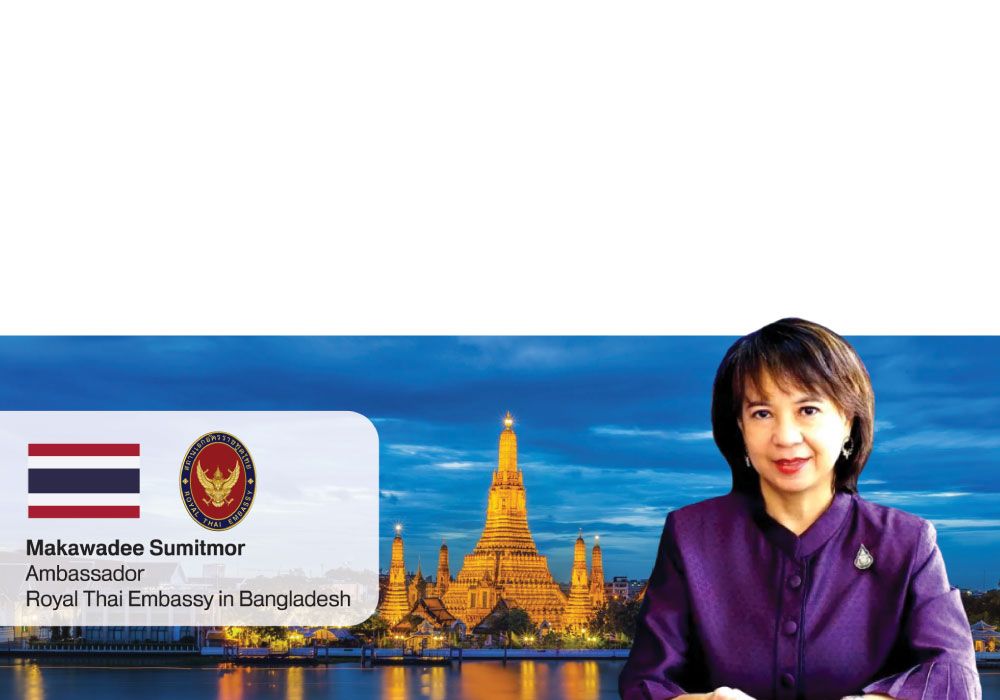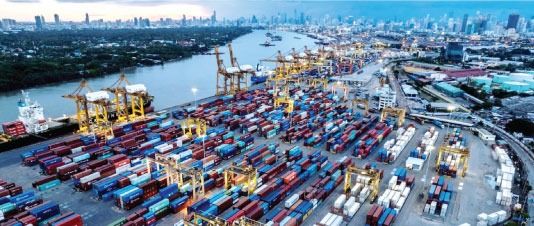- info@ficci.org.bd
- |
- +8802222271610, +8802222271611
- Contact Us
- |
- Become a Member
- |
- |
- |
- |
- |

With a population of 170 million, Bangladesh is a growing market with great potentials. Thai companies started invest- ing in Bangladesh since the 1990s and several more ventures eventually followed, accumulating to around 1.2 billion USD in value. To boost the dynamic of our economic interactions, there has been productive exchanges of visit between the private sectors in the last couple of years which brought new business collaboration and projects.
Most recently in July 2024, Dr. Nalinee Taveesin, Advisor to the Prime Minister and Thailand Trade Representative led a delegation of Thai businesspersons to visit Bangladesh Special Economic Zone in Araihazar and Sabrang Tourism Park in Teknaf. The feedback from the Thai business delegates was quite positive and many of them are having follow-up discussions with their counterparts in Bangladesh.
One of the advantages of Bangladesh is its abundance of workforce and geographical location just next to Myanmar. Likewise, Thailand and other Southeast Asian countries could use Bangladesh as a regional hub for distributing products to northeast India, Bhutan and Nepal.

However, there are still challenges on the way. In the case of Thailand, most Thai companies have limited knowledge of South Asia including Bangladesh. They would prefer to invest in other destinations they are more familiar with. Therefore, it takes more effort to draw their attention to this region and to finally decide to invest. That is why the Embassy sees the importance of exchanging visits between the private sectors so that both sides could have more awareness of the existing potential and have the interest to expand their connection.
Another challenge is the logistics connectivity. Despite being not so far from one another, the transport of goods from Thailand to Chittagong Port could take 2 weeks since transshipment is needed in a third country like Singapore or Sri Lanka. But if we have direct link, the time and cost will be significantly reduced. Both sides are trying to establish a coastal shipping route between Chittagong and Ranong in the western coast of Thailand. If it is viable, trade and invest- ment between Thailand and Bangladesh will be much more convenient and have less logistics cost.
To enhance attractiveness, Bangladesh should explore the possibility to provide more facilitation to foreign investors. There has been some feedbacks about the complexity of regulations particularly those concerning tax and remittance of income. For instance, Advance Income Tax (AIT) is one of the measures foreign investors perceive as not so investor-friendly. Its complicated process in refunding the overpaid AIT means a lost opportunity for the companies to plan efficiently and use the amount for re-investment. Moreover, foreign companies and expats face some hurdles in remitting their income back home. There has been a positive relaxation of regulations in the last few years but there is still room to provide more facilitation which will help enhance the ease of doing business in Bangladesh.

While Bangladesh is a huge market and has low cost for workers, investors nowadays look beyond these factors. Their considerations will also focus on how convenient it is to re-export their goods abroad. These may include transporta- tion infrastructure, logistics cost and access to foreign markets. If Bangladesh could make FTAs with as many countries as possible especially large markets like EU, USA and Japan, its potentials will be strengthened and become more diverse.
Promising segments for Thai investors could be construction materials, agro-industry, food processing and tourism. We should maintain the momentum of economic collaboration and might give priority to two initiatives that could bring tangible outcome. One is the realization of the Chittagong- Ranong coastal shipping service. The other one is to start the negotiation process of a free trade agreement between Thailand and Bangladesh after the Letter of Intent was signed by the Ministers of Commerce of both sides in April 2024 in Bangkok.






